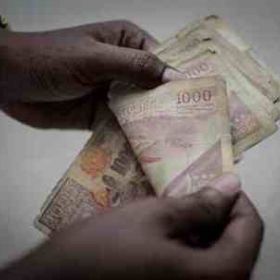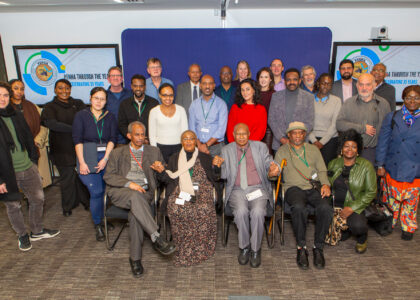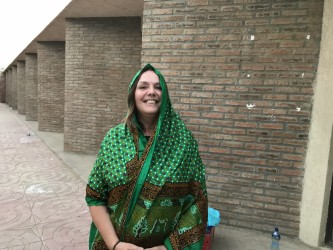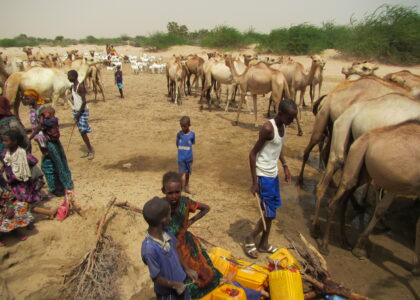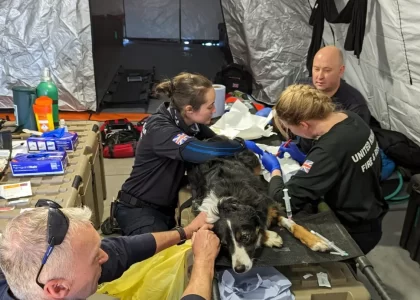This article focuses on the role of social capital in general and remittances in particular in the context of Somalia looking at the adverse effect of counter-terrorism legislation of the superpower governments including US in tackling the risk of famine expected to occur in less than few months time.
Somalia as a fragile state has been in continuous war since the fall down of Siad Barre regime in 1991. For two decades the absence of effective central government led to the rule of jungle and drained the level of security in the country. Though with the help of the UN and AU a transitional government has put in place, its capacity is very weak to maintain peace and security to its people defeating the Al-Shebab. The acute lack of capacity has resulted in the intervention of international community as it is beyond the state to maintain peace and to secure food to the people[1].
According to Ban Ki-moon[2], UN General Secretary Somalia is on the verge of famine and also in a rapid rate due to the compounded effects of ongoing conflict, high food prices and drought. This left more than 11 million people in desperate need of food in the Horn of Africa and especially 2.9 million of Somalis are living in a humanitarian crisis[3]. This figure includes those who live in their villages as well as in Internally Displaced People (IDP) refugee camps like Dadaab – the largest in the world. This risk of famine can have a regional dimention and pose huge pressure on the neighbouring countries of Kenya and Ethiopia as their borders are always open to host the famine affected Somalis.
As to the risk management efforts, though the UN and other civil society organisations (mainly 22 aid agencies[4]) have raised the alarm through their joint effort of early warning system, the international response is less than expected. Eight warnings on food crisis have been made but only 27% of the requested risk preparedness budget ($388 million) has been secured. During 2011, though there were 16 food insecurity warnings and the fast-evolving reality wasn’t taken by the international community which led to the death of more than 260,000 lives. Besides the natural causes of the expected famine, the counter-terrorism policy of the US and its allied countries is playing key role in negatively affecting the situation in the ground. As there is huge gap in the effort being done for risk preparedness, remittance can fill it as about 40% of the Somalis depend on it[5].
Somalis are known for being the most interlinked communities through their kinship and clan system where the social capital has helped them a lot to survive and be resilient during the two decades war and its negative resultants. Somalis are found all over the world where they have been continuously supporting in kind and also financially remitting to their family members back home. The estimated number of Somalis who live abroad is about three million[6]. According to Laura Hammond, Senior Lecture of the School of Oriental and African Studies (SOAS), University of London, of the estimated number of 1.5 million Somali diaspora, a total of $1.3bn-$2bn a year is being remitted which the figure clearly indicates their inevitable role in deterring the risk of famine[7].
However, since the last four years the US government has issued a policy that forced to the closure of remittance transfer companies that facilitate the process of getting the cash to the hands of the needy population. The main concern of the US government and others is that they aren’t sure whether the money is being diverted to terrorist groups like Al Shebab or not. That is why, the anti-terror legislation came into being and since then four money transfer service companies are closed down. This legislation is harming the people at risk of famine[8].
Indeed, since international cash transfers including the remittances play great role in curbing the effects of the risk of famine and mitigating post-risk lack of coping capacity among the communities, this anti-terrorism legislation should be a flexible to allow the social capital side of the Somalis to play a role in reducing the consequences of the risk. That is, to allow Somali transfer companies to work in a very transparent way and also encourage others to engage in the money transfer process with scrutinised accountability mechanisms. Thus, social capital can continue to play its role as a risk mitigation factor in filling in the gap created due to poor response of the international community to the risk of famine.
[1] World Bank (2014) World Development Report 2014: Risk Management can be a powerful instrument for development, pp. 252
[2] http://www.un.org/africarenewal/web-features/famine-somalia
[3] http://www.oxfam.org/en/policy/somalia-crisis-alert-risk-relapse
[4] http://www.trust.org/item/20140507174842-r0lih/
[5] http://www.mprnews.org/story/2014/05/13/house-bill-may-ease-somali-remittance-program-worries
[6] http://news.bbc.co.uk/1/shared/spl/hi/pop_ups/04/africa_somalia/html/7.stm
[7] http://www.theguardian.com/global-development/poverty-matters/2012/feb/20/what-role-somalia-diaspora-rebuilding
[8] Cockayne, James and Shetret, Liat (2012) Harnessing Somali Remittances for Counterterrorism, Human Rights and State Building, Centre on Global Counter-terrorism Cooperation

